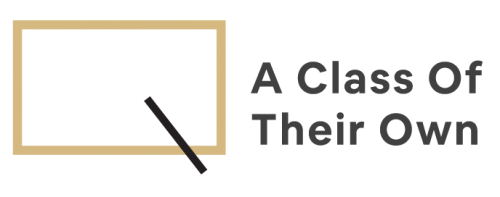A Class Of Their Own: Building the future with data

In this series, NUS News profiles the outstanding educators who have inspired generations of students at the University.
“It all started in my childhood with Lego blocks. I’ve always liked to build things,” recalls Dr Clayton Miller, as he muses on the beginnings of his fascination with building science. Dr Miller, who is Assistant Professor at the NUS School of Design and Environment, Department of Building, has since rapidly moved from building blocks to buildings.
He branched out into numerous architectural, operational, design, engineering and research roles over 15 years, gathering a wealth of industry and academic experience under his belt. Yet, during this multifarious journey, he noticed a major deficiency in the building and construction industry.
“There were so many sensors, models and 3D representations of buildings and just so much data generated in the industry, which people were really not utilising. I felt they needed to pick up the skills necessary to leverage all this data, so I started giving workshops and transitioned into teaching,” recounts Dr Miller, adding that it was the free spirit of inquiry accorded by academia that drove him to pursue a Fulbright scholarship and a doctorate.
Today, inculcating the same data-driven curiosity in his students remains a core aspect of Dr Miller’s teaching ethos at NUS. For instance, he describes his approach in an introductory module on digital construction as “getting the students to work with code very quickly by diving straight into industrial practice”.
“It’s all about bridging the gap between data science and building science in order to expand the field. I introduce students to data sets, scenarios and projects that they would likely see in an actual workplace setting, to show them what data literacy can do in the context of the building industry,” he says.
Dr Miller’s teaching philosophy is seamlessly aligned with the cross-faculty approach to learning embraced by NUS, where students are given opportunities to discover new topics of interest, and then delve deep into these subjects later on as they wish. “Students often make rapid progress with fundamental coding early on, which is powerful because this tends to spark off an interest in them. If they want to go further, I encourage them to continue taking modules from the School of Computing to dive into the ‘how’, but with the industry focus of my classes, I show them the ‘why’,” he explains.
Indeed, Project and Facilities Management student Raymond Lim credits Dr Miller with igniting his passion for programming. Raymond recalls how, in the digital construction module, Dr Miller first broke Python coding down with structured, step-by-step videos. He then encouraged students to take charge of their own learning by getting them to troubleshoot programming issues independently.
Raymond concludes, “The way Dr Miller teaches is not based on the textbook. It’s hands-on rather than mired in theory. It’s new, interesting, and catered towards preparing us for our future careers. I found the content useful as big data and programming are the future.” Raymond has since taken other programming classes, including a massive open online course run by Dr Miller on edX titled “Data Science for Construction, Architecture and Engineering”, with over 15,000 participants from more than 140 countries.
Beyond his extensive teaching duties, Dr Miller also leads a research team in the Department of Building, where he supervises student researchers in projects that combine big data with building science. Teo Yi Ting, a Project and Facilities Management undergraduate who is a part of the team, is quick to emphasise how Dr Miller empowers his students by giving them important responsibilities and opportunities for exposure.
“Working with Dr Miller is the closest that I have been to experiencing the full range of what it means to be a project manager. He doesn’t see us as ‘just’ students and he entrusts us with crucial tasks,” says Yi Ting, who describes how she was given direct access to the project databases, as well as complicated and expensive equipment. “He delegates work to us equally and fairly and brings in a lot of fresh ideas and methods which will be relevant to my future in the industry,” she adds.
In turn, Dr Miller is heartened by the leadership ability and drive displayed by his students. “It’s really organic and inspiring, how they keep saying they want to help out. They not only want to work with the latest technology, but also directly with the people in their teams. I find it’s usually the undergraduates who want to step up into key leadership roles, and I admire how they take ownership of their projects that way. They’ve really been the glue that drives everybody in the team to work together and move forward.”
In both his teaching and his research, Dr Miller ultimately hopes to nurture students who are forward-thinking visionaries and trailblazers, and who readily connect the dots between their academic inquiry at NUS and their pursuits beyond.
“It’s about trying something new and cutting-edge, and learning to incorporate that into your future job or posting, no matter what field you eventually venture into. You might just be one of the first to have these skills or to come up with a fresh way to use them. It’s all about showing your bosses what is possible — all about opening their eyes. I want my students to be known for that: having a new perspective on solving an old problem.”
This is the fifth instalment of a series on outstanding educators at NUS.
Read about Mr N. Sivasothi from the NUS Faculty of Science and his unique blend of education and environmental advoacy – an ecosystem in which every element feeds into another.




